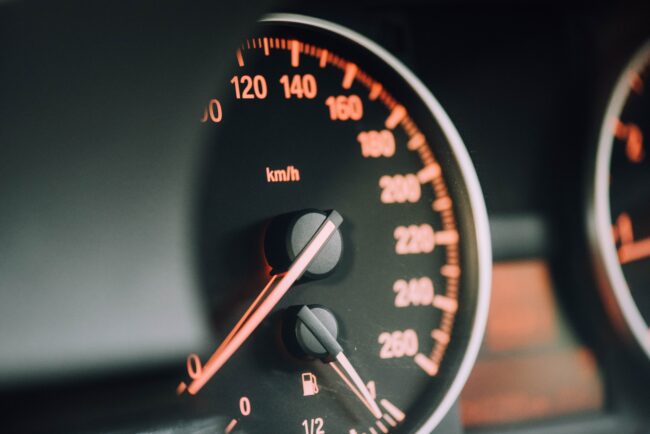
When it comes to purchasing a new car, one of the key factors that often arises in the minds of potential buyers is the ideal mileage for a brand-new vehicle. In this article, we delve into the depths of this query to help you understand the factors at play and determine how many miles should new car have.
Understanding the Term “New Car”
It’s important to define what a “new car” is before we can discuss the mileage issue. A new car is typically referred to as one that has never been registered or owned before. And it is being sold directly by the manufacturer or a factory-approved dealership. When someone talks about a new car, they usually mean that it is brand-new. They add that it has not undergone any wear and tear as a result of past ownership. This term distinguishes it from used cars, which have had previous owners and may vary in terms of age, condition, and mileage. But how many miles should new car have?
Even though a car is classified as “new,” it may have been manufactured several months prior to its purchase. It is due to the production and distribution process.
Delivery Miles- How many miles should new car have?
Car delivery miles usually refer to the distance covered by a car while being delivered to a customer. These miles include the distance from the dealership or manufacturer to the delivery location. The exact number of car delivery miles can vary depending on some factors. These are location of dealership, the distance to customer, and any detours or stops made during the delivery process. It’s worth noting that car delivery miles are typically not include in a vehicle’s odometer reading at the time of purchase. The recommended mileage for a new car might change depending on a variety of variables. In general, a brand-new car should have very few miles on the odometer, typically less than 100 miles. These miles are usually a result of the car being transported from the factory or assembly plant to the dealership.
It’s crucial to remember that certain new vehicles may have somewhat higher mileage as a result of test drives, inspections, or other required procedures before being sold to a consumer. It’s wise to always question the dealership about the car’s mileage and how it was used prior to the sale when buying a new vehicle.
Mileage Considerations
When it comes to determining how many miles should new car have, there are a few factors to consider:
- Test Drive Miles: It is common for dealerships to allow potential buyers to take test drives in new cars before making a purchase. These test drives are intended to give customers a feel for the vehicle’s performance and features. As a result, the test drive may add a few miles to the car’s odometer. However, these miles should still be relatively low and within an acceptable range.
- Dealer Trades: Occasionally, dealerships may trade vehicles with each other to meet customer demands. In such cases, the new car may have additional miles due to the transportation between dealerships. However, these trade-related miles are typically minimal and should not be a cause for concern.
- Storage or Display Miles: New cars are often displayed in showrooms or stored in lots before being sold. During this period, they may accumulate a few additional miles due to movement within the facility. While these miles are generally negligible, it’s worth inquiring about the storage or display practices of the dealership to ensure your satisfaction.
Ideal Mileage Range
Now that we have considered the various factors contributing to a new car’s mileage, let’s discuss the ideal mileage range for a new vehicle. In general, it is reasonable to expect a new car to have anywhere between 10 to 100 miles on the odometer. This range accounts for delivery miles, test drive miles, and other minor factors discussed earlier. If you encounter a new car with significantly higher mileage, it is essential to clarify the reasons with the dealership to ensure transparency and peace of mind.
Super device that helps you to stop mileage
Regarding simplicity and dependability, the kilometer stopper from the Super kilometer filter differs from other corrective tools. This device is an easy plug-and-play device. Neither cutting cables nor soldering are required. This cutting-edge tool implies that you may return to the initial state as soon as you are done with it. It stops adding up a new miles. It was absolutely untraceable as a result of this. Super Kilometer Filter guarantees the quality of the goods and provides you with a guarantee that any changed information will remain undetectable.
Takeaway
Determining how many miles should new car have is a common concern among buyers. By considering factors such as delivery miles, test drives, and other minor contributors, we can establish an ideal mileage range of 10 to 100 miles for a new car. It’s crucial to maintain open communication with the dealership to address any concerns and ensure transparency throughout the purchasing process. With this information you can start search for your new car.
Latest Posts
- 1
- 2
Is Buying a Car with Over 100k Miles a Good Idea?
April 10, 2024 - 3
Why Are High Mileage Cars So Expensive? – A Guide
April 5, 2024 - 4
Where Is The Mileage Located In A Car?
April 3, 2024 - 5
Whats High Mileage in Vehicles?
March 29, 2024 - 6
What’s The Gas Mileage On A Smart Car: A Comprehensive Guide
March 27, 2024 - 7
At What Mileage Should You Sell Your Car?
March 22, 2024 - 8
Should You Buy a Car with Over 100k Miles?
March 20, 2024 - 9
Should You Buy a Car with 100k Miles?
March 15, 2024 - 10
Understanding ODO Meaning in a Car
March 13, 2024








